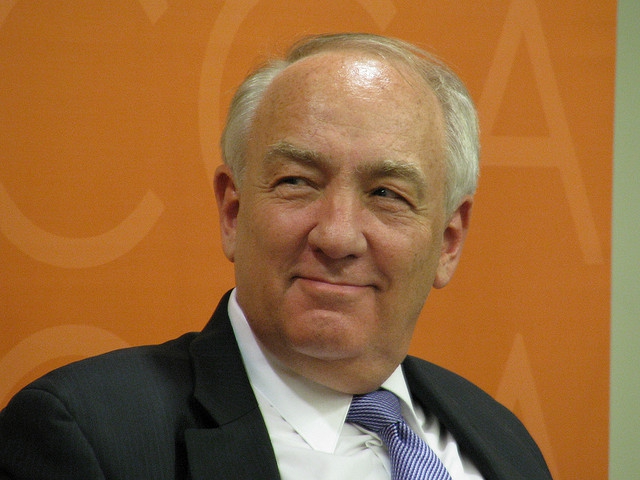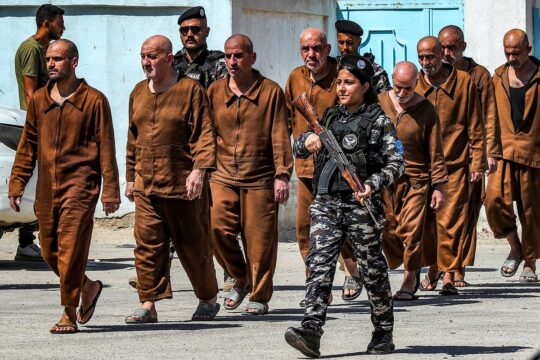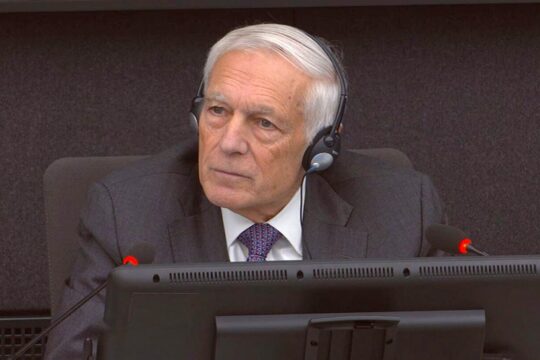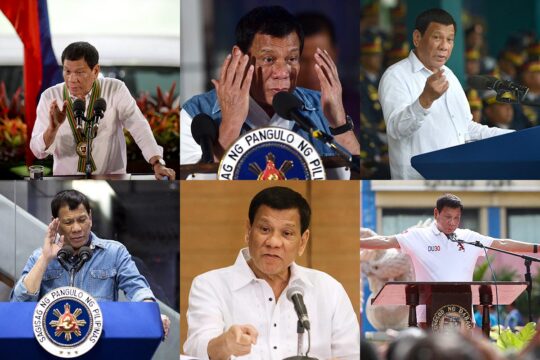Stephen Rapp has been the US Ambassador-at-Large for War Crimes since August 2009. On August 7, 2015, he is stepping down from his post.
Prior to this post, Rapp was also Prosecutor of the Special Court for Sierra Leone, and before that, Senior Trial Attorney and Chief of Prosecutions at the International Criminal Tribunal for Rwanda.
In an exclusive interview with JusticeInfo.Net, the American jurist talked about his country’s contribution to international justice. He says the Obama administration has notably taken a very different approach from that of George W.Bush to the International Criminal Court.
Rapp gave this interview to JusticeInfo.Net on July 20 from Dakar, where he was attending the start of trial of former Chadian dictator Hissène Habré for war crimes, crimes against humanity and torture.
JusticeInfo.Net: According to foreignpolicy.com, you have (and I quote) “struggled to get the Obama administration to live up to its own ideals”. Is that true?
Stephen Rapp: Well, I think I have been quite successful, and President Obama has in human rights and accountability, particularly in reversing our strategy of hostility to the ICC and engaging with the ICC supportively, as we’re allowed to do under Federal law, and supporting justice at the national level, sometimes with international capacity or participation, such as here in Senegal right now in the Habré case. This is a process supported by the United States with a contribution announced by President Obama when he visited here a couple of years ago. So I have had that level of support. I think that what people often refer to is that we’re in a challenging environment in the world with ongoing conflicts, particularly with the results of the Arab Spring and the war in Syria with 230,000 dead and no way to bring the perpetrators of those atrocities to justice. We don’t have any international or hybrid forum to achieve justice there and our efforts to have it referred to the UN Security Council were blocked by the Russian and Chinese veto, so there are those difficulties, as with arrests for the crimes committed in Darfur, Sudan, under the 2005 UN Security Council Resolution referring that case to the ICC.
But there are other places where we have achieved success, particularly bringing Bosco Ntaganda (Congolese warlord) to trial after his surrender in Kigali in 2013. We worked with Rwanda and with the parties to get him to The Hague within 4.5 days, and a similar thing happened with Dominic Ongwen (a leader of Ugandan rebel group LRA) who was surrendered as a result of our active support in the region. We’re still looking to bring Joseph Kony (LRA leader) in as well. So these have been successes. Even in the case of Syria, in the absence of a court, we’ve actively supported the Human Rights Council’s commission, and going beyond that, we’re supporting this idea of documentation centres with national participation. (…) As we’ve seen in the Habré case, when you have the evidence, eventually the pressure will build and support will come and you will have justice. And that’s the signal that we’re sending everywhere in the world.
JusticeInfo.Net: What do you think is the significance of the Habré trial?
SR: It is an example of how you can build a hybrid court within a region in a very positive way. Here you have Senegal reaching an agreement with the African Union and essentially ratifying a treaty which establishes an internationalized court like we had in Sierra Leone, but in a way more part of a national system than in Sierra Leone. But still with the same international benefits, the ability to charge Heads of State or former Heads of State, the ability to apply international law as it was in effect at the time (…). You get those kinds of advantages that you don’t have in a purely national case.
JusticeInfo.net: So do you think the Habré trial could set a precedent for other countries?
SR: We are thinking, for example, of South Sudan, where horrendous crimes have been committed, particularly since December of 2013 in the civil war there. We have seen, for example, recent reports of mass rapes and horrible crimes against children and fighting in Unity State, where children have been targeted for their ethnicity, girls raped and burned alive. These crimes need to be brought to account. South Sudan is not a State Party to the ICC, it’s in an area where the ICC has had difficulty -- with the Sudan case, but also in Kenya. And having a court to try these cases, to investigate and prosecute independently what has happened on both sides of the conflict in South Sudan in terms of atrocities could be done through a mixed court, with South Sudan, the AU and the UN potentially as partners.
JusticeInfo.net: In this position, what is the thing that you have been most proud of?
SR: Well I think first our engagement in a positive way with the International Criminal Court, having come out of a period under the Bush administration, at least the first term of George W. Bush, when they wanted to kill this court in the cradle. Under the Obama administration, we took up our position as observers and looked to our law, which restricted us to some degree (a law passed in 2002), but allowed us to assist the court on a case by case basis. So we’re working closely to try to help the court succeed. And one of the ways that we were particularly able to do that was our Rewards for Justice programme that has been in effect since 1998 providing rewards of up to 5 million dollars for information leading to the arrest of persons wanted by the former Yugoslavia and Rwanda tribunals. We convinced our Congress in 2012 to expand that to include ICC fugitives (…). And that contributed, together with some intense diplomacy, to the surrenders of Bosco Ntaganda and Dominic Ongwen.







